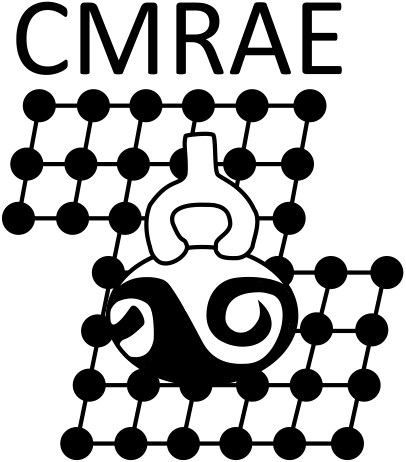The MIT Department of Materials Science and Engineering (DMSE) offers an interdisciplinary doctoral program in Archaeological Materials for graduate students who wish to combine the study of anthropological archaeology and archaeological science with the science and engineering of materials. The curriculum is structured as a well balanced group of at least ten required graduate level subjects, in archaeology and related fields on the one hand, and materials science and engineering on the other. It allows students scope in combining these fields while ensuring depth in command of both. Admission to the program is through the department.
The Ph.D. program in Archaeological Materials is designed for individuals who wish to incorporate the methods and perspectives of materials science and engineering as major investigative tools within fields such as anthropological archaeology and ethnography. The program does not normally include research in areas such as archaeological dating techniques or in the development of instrumental analytical methods that are often grouped into a category called ‘archaeometry’.
Some of the required and recommended subjects are often taken in MIT departments other than DMSE, such as Architecture; Civil and Environmental Engineering; Earth, Atmospheric, and Planetary Sciences; Mechanical Engineering; Urban Studies and Planning, as well as in Economics; the Program in Science, Technology, and Society; and in the Anthropology Department of Harvard University.
All students must complete the equivalent of one semester of archaeological or ethnographic fieldwork before submitting a doctoral thesis topic. This requirement may be satisfied by enrollment in an archaeological field school or by participation in an ongoing field research project.
The Ph.D. Curriculum
A student must complete a total of seven graduate (H-level) subjects in order to qualify for the General Examination in the field of Archaeological Materials. A total of ten subjects is required to graduate with a doctoral degree.
The Written Portion of the General Examination: Four required subjects comprise the Graduate Core of the program, two in Materials Science and Engineering and two in Archaeology. The written portion of the General Examination consists of questions based on material covered in the four core subjects.
The Oral Portion of the General Examination: The oral portion of the General Examination includes material from three Restricted Elective (H-level) subjects the student may choose from a list specified by the Degree Program. One of these subjects must be in Materials Science and Engineering (Course 3). The oral portion of the examination will not re-examine core subject material but will integrate core knowledge as it pertains to the student’s specialty area.
Beyond these seven subjects (4 Core + 3 Restricted Electives), the student must choose at least three further subjects germane to her/his area of interest, with the approval of the student’s doctoral thesis committee.
Core Subjects (4, all H-level)
Archaeology (2)
- Method and Theory in Archaeology
- Physical Anthropology: Human Biological Evolution
Materials (2)
- Materials at Equilibrium
- Kinetic Processes in Materials
General Written Examination
Restricted Electives (3, all H-level)
Archaeology (2)
- A subject in the student’s geographic area of study
- A subject in the student’s area of theoretical interest (e.g., economic archaeology, high-altitude adaptations, evolution of technological style, architecture and urban contexts)
Materials (1)
- A subject in the properties of materials (e.g., Mechanical Behavior of Materials; Fracture and Fatigue; Molecular, Cellular, and Tissue Biomechanics) OR
- A subject in the material most relevant to the student’s research (e.g., Modern Physical Metallurgy; Mechanical Behavior of Polymers; Molecular Principles of Biomaterials; Mechanics and Design of Concrete Structures)
Oral Examination
Unrestricted Electives (3, all H-level)
Archaeology (2)
- A subject in a geographic region outside of the student’s primary focus, OR in a field such as geoarchaeology or palaeoecology
- A subject relevant to the student’s research focus (e.g., craft specialization and the development or complex society; the built environment as a component of ideational systems; materials management and environmental conservation and degradation in prehistory)
Materials (1)
- A subject in materials processing, in engineering design, or in special techniques in the analysis of the mechanical or thermal behavior of materials (e.g., Soil Dynamics; Engineering Geology; Imaging of Materials; Ecologies of Construction; Geological Image Interpretaton)
The Doctoral Thesis
Please refer to the Department of Materials Science and Engineering website for a full discussion of topics pertaining to the doctoral thesis, such as choosing a thesis committee, scheduling of the thesis proposal, the preliminary examination on the thesis, and the final thesis defense.

